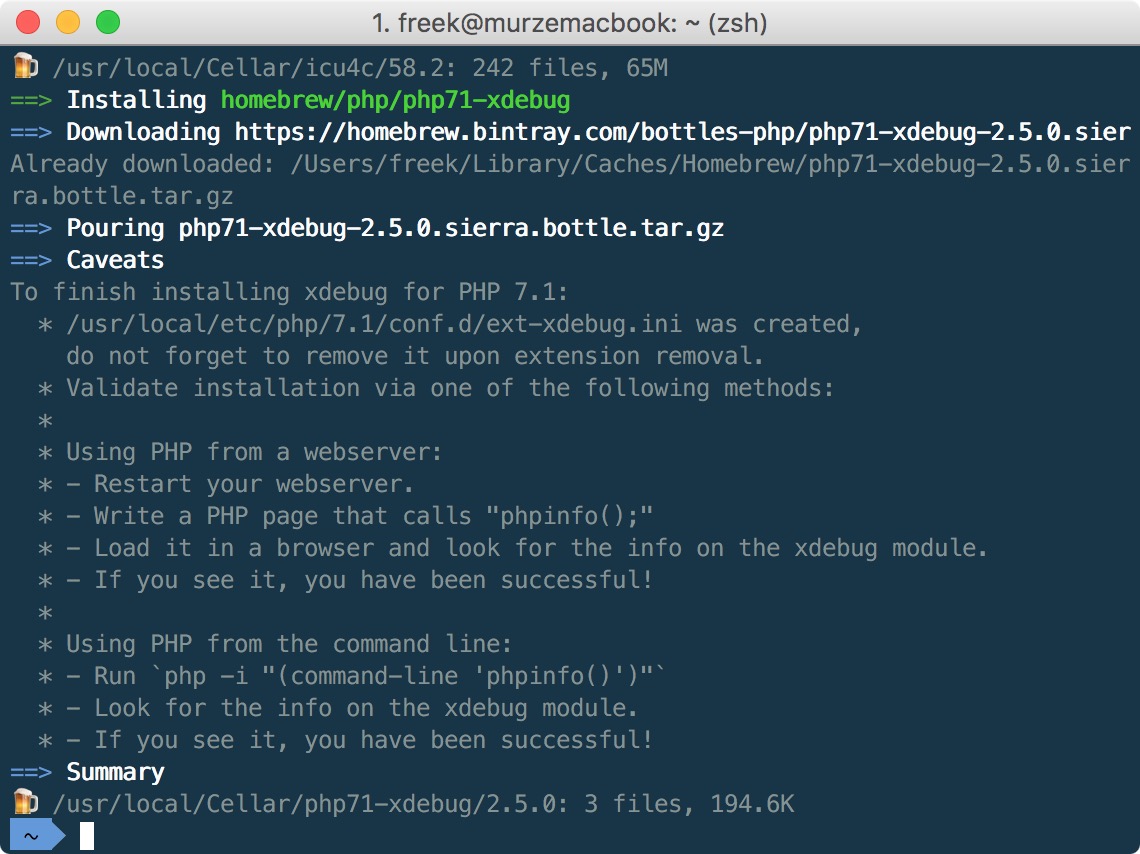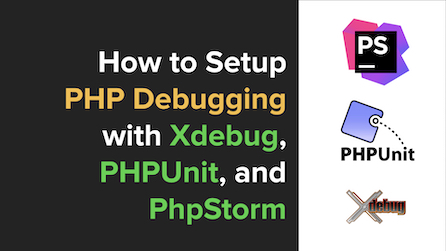Homebrew Xdebug
Analytics cookies. We use analytics cookies to understand how you use our websites so we can make them better, e.g. They're used to gather information about the pages you visit and how many clicks you need to accomplish a task. Xdebug is an extension for PHP, and provides a range of features to improve the PHP development experience. May 03, 2018 According to xdebug’s site, the best way to install it when using homebrew is to use the pecl version. So step 1, make sure we have pecl. $ which pecl /usr/local/bin/pecl Pecl should really come with a homebrew php version, so you should have this. Dumb question I think, but I have PHP 5.6.14 running on El Capitan. I have installed xdebug with brew install php56-xdebug But there is no mention of xdebug in phpinfo phpinfo reveals: Configu.
Homebrew Xdebug 2


Special Edition for those that have prior installations
Homebrew is a neat little package manager for Mac OS X which gets you all the stuff Apple left out. To install Homebrew, just paste the following command into your terminal. Ruby -e '$ (curl -fsSkL raw.github.com/mxcl/homebrew/go)' On a Mac, Homebrew will be the most convenient way to install Xdebug.
Special Edition: macOS 11.0 Big Sur Development Environment
This is a guide to help those with prior Homebrew mutliple PHP-based installations that are looking to upgrade to the new Hombrew/core PHP setup from the prior Homebrew/php keg which is now deprecated.


With the deprecation of Homebrew/php tap, many of the prior formulaes we used in this guide are no longer available. The cleanest way to migrate from the old brew formulae to the new pecl package approach is to remove everything PHP-related and reinstall with the new instructions.
The first step in this process is to update all the latest packages then upgrade them. This will actually 'migrate' the core PHP packages (which are the only ones supported), but there's a bunch of symlinks utilized that could cause problems down the road, so after upgrading, we'll remove all PHP packages, to provide a fresh start:

You can then double check the current installed PHP packages with:
Now we just need to remove everything:
Don't worry if you don't have all these packages installed, this is just a cumulative list and it will skip over anything that's not installed.
Now we can check to see if anything PHP-related is left:
If you don't see anything you are all good. If something is still left, you can uninstall those individually using the same brew uninstall --force syntax as above.
Now we want to clean out the old configuration options for PHP:
Now you've cleaned up your prior installation, you can jump to the PHP Installation section of Part 1 of the guide.
Homebrew Xdebug Pro
Please enable JavaScript to view the comments powered by Disqus.